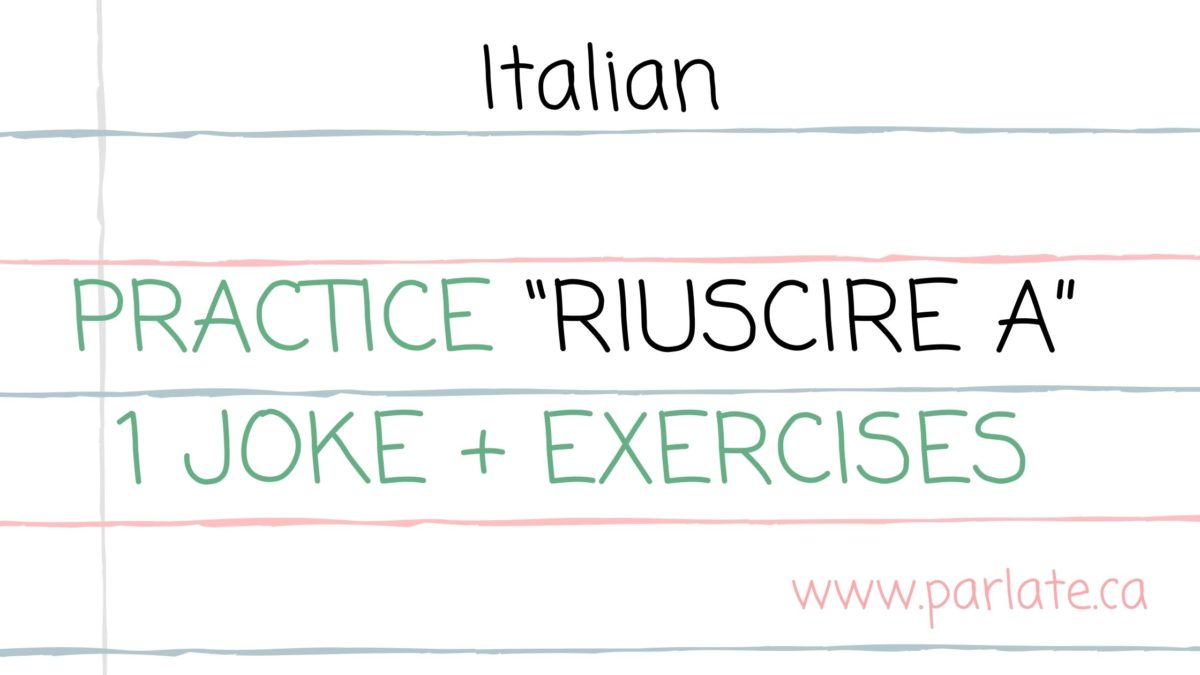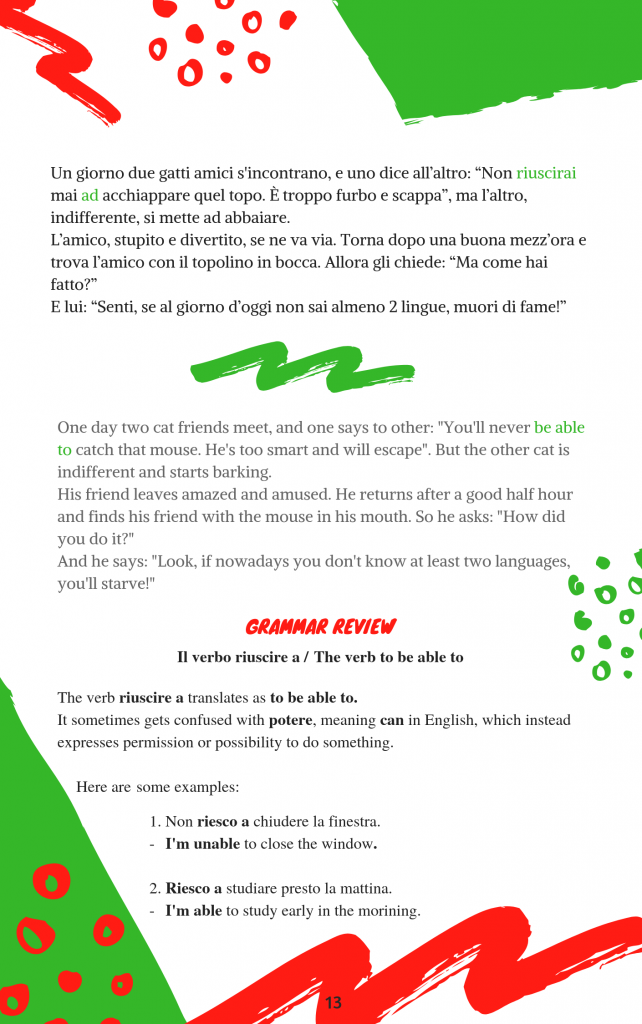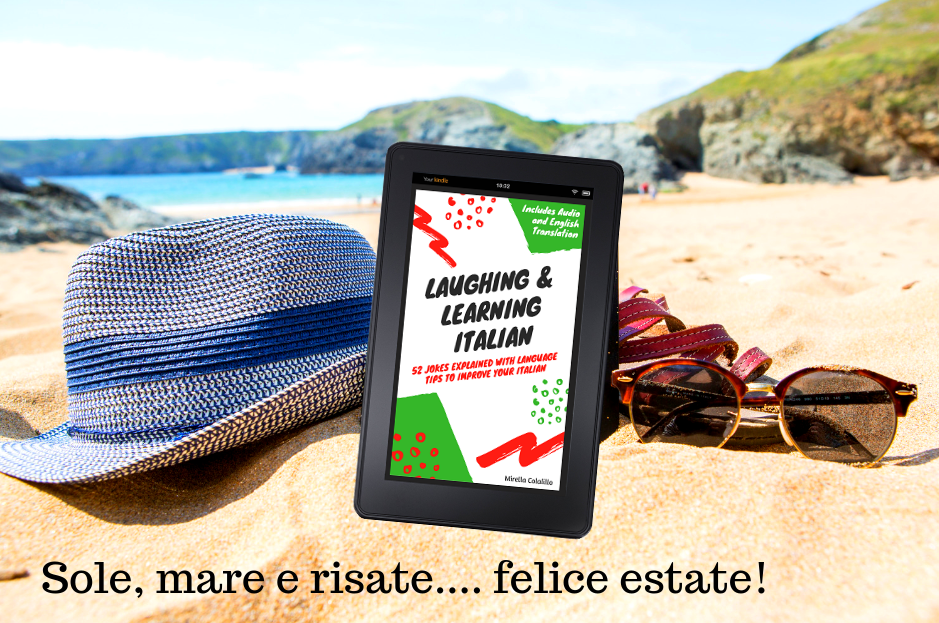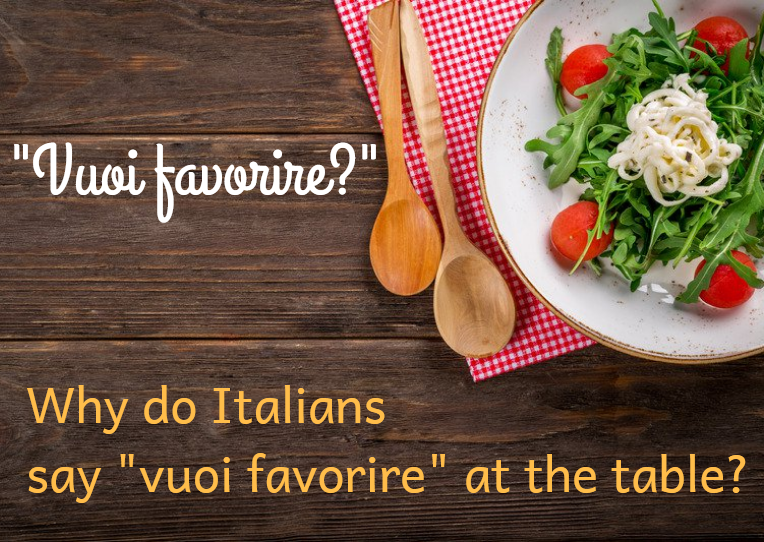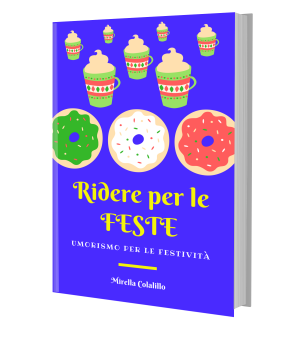Usiamo una barzelletta per esercitarci!
Let’s practice “riuscire a” with a joke and some exercises.
Questa è una pagina del mio libro “Laughing and Learning Italian”. Ci sono 52 barzellette per ogni settimana dell’anno più una traduzione in inglese.
C’è anche un file audio in italiano di tutte le 52 barzellette per assicurare la corretta pronuncia e una giusta inflessione.
Una delle mie studentesse, Linda, ha creato alcuni esercizi per aiutarla nella pratica. Mi suggerisce di creare un libro di esercizi per il libro. Cosa ne pensi?
Ecco alcuni dei suoi esercizi. Di seguito troverai le soluzioni.
This is a page of my book “Laughing and Learning Italian”. There are 52 jokes for each week of the year plus an English translation. And there is also an audio file in Italian of all 52 jokes to make sure you pronounce the words properly and use a correct inflection.
One of my students, Linda, created some exercises to help her practice. She suggests I create a workbook with exercises. What do you think?
Here are some of her exercises. You’ll find the solutions below.
Esercizio 1: Riuscire a – to manage to do something, to succeed in doing something
Scrivi la forma corretta del verbo riuscire a (presente).
- Non ___________(io) a farlo.
- ________________ (tu) a finire il tuo lavoro entro le sette?
- Fernando _______________(lui) ad aiutarti.
- __________________(loro) a parlare due lingue.
- Non __________________ (noi) a capire quel concetto.
Esercizio 2: Riuscire a –
Rispondi alle domande usando la forma corretta del verbo riuscire a (presente)
- Riesci a studiare con il rumore? Sì, ____________ a studiare.
- Riuscite a trovare l’indirizzo? No, non _______________a trovarlo.
- Signore, riesce a sollevare questa tavola pesante? Sì, ________________a sollevarla.
Soluzioni esercizio 1:
- riesco, 2) riesci, 3) riesce, 4) riescono, 5) riusciamo
Soluzioni esercizio 2:
- riesco, 2) riusciamo, 3) riesco
Scrivi delle frasi con “riuscire a” nei commenti. //
Write sentences with “riuscire a” in the comments.
Quest’estate più che mai abbiamo bisogno di sorridere! Acquista il libro qui. // This summer more than ever we need to smile! Buy the book here.

